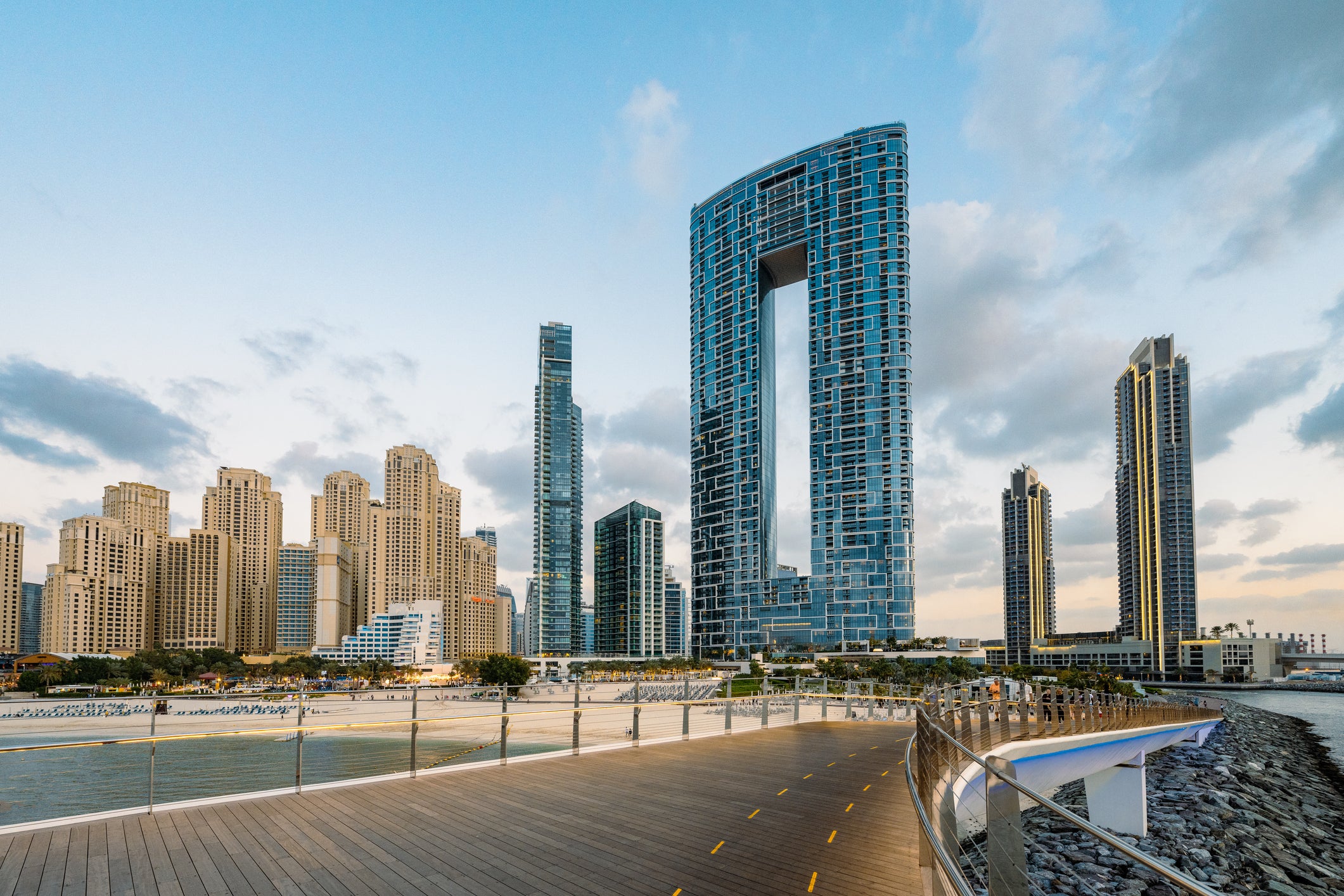Dubai travel advice: is it safe to visit right now?
The Foreign Office does not warn against travel to the UAE following missile attacks in the Middle East

Your support helps us to tell the story
Our mission is to deliver unbiased, fact-based reporting that holds power to account and exposes the truth.
Whether $5 or $50, every contribution counts.
Support us to deliver journalism without an agenda.

Louise Thomas
Editor
Following Iran’s overnight missile attack on Israel on Tuesday evening, closed airspaces and diverted flights have displaced domestic and international travel plans in the Middle East.
Dubai’s high-rise skyline is one of the most popular Middle Eastern destinations for UK holidaymakers, and travellers seeking winter sun may be questioning whether to book a holiday there as fighting escalates in the region.
The Foreign Office considers the United Arab Emirates safe to travel to – aside from advising British tourists to take the usual travel precautions against crime while visiting.
Though not directly involved in the conflict, the UAE’s proximity to Iran over the Persian Gulf has prompted travel concerns.
Here’s the latest travel advice for Dubai, plus all the key questions and answers.
What does the Foreign Office say?
The Foreign Office (FCDO) does not warn against travel to the United Arab Emirates, but advises British nationals to stay vigilant as “Terrorists are likely to try to carry out attacks in the UAE”.
On 29 September official FCDO advice was updated to reflect the conflict affecting Lebanon.
The FCDO said: “Ongoing hostilities between Israel and Lebanon could escalate quickly and pose risks for the wider region. Monitor this travel advice and other media as the situation is changing fast.”
Military activity in the Red Sea area is also mentioned as a safety and security risk with attempts by Houthi militants to prevent the movement of international shipping posing “a possibility that Travel Advice for nearby countries could change at short notice”.
Generally, visitors are reminded to respect local laws as the UAE is a Muslim country – specifically during the month of Ramadan.
Same-sex activities, drugs and drinking alcohol in a public place are all illegal in the UAE.
Are Dubai flights continuing?
Yes, flights are still operational to and from Dubai and the UAE capital Abu Dhabi amid disruption in the region.
However, following temporary airspace closures above Israel, Iran, Jordan, Iraq, and Lebanon on Tuesday evening airlines flying from Europe to the Gulf experienced severe disruption, with Emirates and Qatar Airways – the two biggest Middle East carriers – diverting dozens of flights.
UAE flag carrier airline Etihad Airways warned that flight delays and cancellations remain likely.
“Etihad Airways flights only operate through approved airspace; safety is always our highest priority, and we would never operate a flight unless it were safe to do so.
“This is a developing situation, and the airline is continuously monitoring security and airspace updates,” Etihad said.
On 1 October Emirates announced all flights to and from Iraq, Iran, and Jordan would be cancelled on Wednesday and Thursday (2-3 October) due to “regional unrest”.
The airline said: “Customers transiting through Dubai with final destinations in Iraq, Iran, and Jordan will not be accepted for travel at their point of origin until further notice.”
Simon Calder, travel correspondent of The Independent said: “As a result of all the missed connections and cancellations, passengers may be waiting at the hubs for several days for onward flights.”
What if I have previously travelled to Israel?
According to the Foreign Office, UAE immigration authorities have advised that British nationals with valid or expired Israeli visas or stamps in their passports should “not face any difficulties entering the UAE” so long as they do not intend to work.
However, those planning to work risk being denied entry into the country.
What if I have booked a package holiday to Dubai?
As the Foreign Office does not warn against travel to the United Arab Emirates, there is no prospect of being able to cancel a trip for a full refund. Neither will travel insurance be of help; the insurer will say that there is no reason not to go.
For more travel news and advice, listen to Simon Calder’s podcast
Join our commenting forum
Join thought-provoking conversations, follow other Independent readers and see their replies
Comments